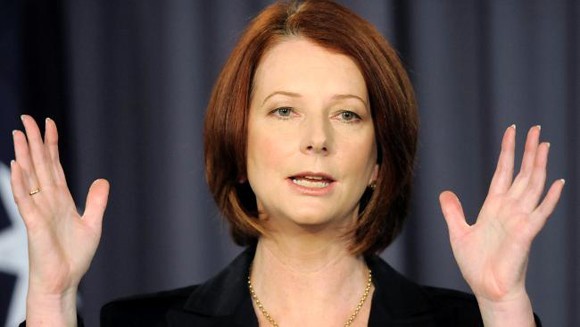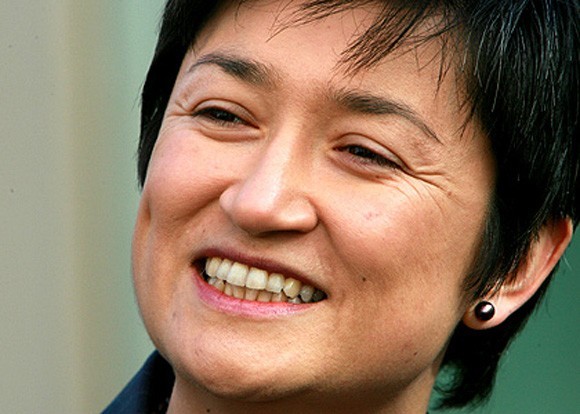It’s a question resonating through suburban living rooms across the country: Why doesn’t Australia legalise gay marriage?
This is not an “inner-city media issue”, as columnist Gerard Henderson wrote this week.
It was far from clear, he maintained, that same sex marriage was a priority for many Australians living in the suburbs and regional centres.
People are increasingly confused by the concept of an unmarried atheist Prime Minister – who speaks out about discrimination against women – refusing to stop discrimination against homosexuals.
The angel on one shoulder calls this incongruity; the devil on the other points to political expediency.
Neither party wants to lose the Christian vote. But marriage is NOT a religious institution.
I’ve spent the past three weeks travelling the country, visiting friends, relatives, and acquaintances of different political persuasions. When the conversation turned to politics, they didn’t want to talk about the economy, boat people, or the carbon tax.
“Why don’t they just legalise gay marriage and be done with it?” one older, conservative friend asked. “If two people love each other, what harm can it do?”
“I don’t think my gay friends would want to get married!” another laughed. “But if they decided to, why should they take their money overseas?” he said, referring to the pink dollar flowing to France and New Zealand.
One friend’s mum, a deeply religious woman, said, “Christians believe marriage is between a man and a woman. Why can’t they call it another name, like garriage?” she asked. (“Because people might think it’s an institution to park their cars in,” I almost said.)
Interestingly, a recent Galaxy poll found 53 per cent of Christians support same-sex marriage.
In the broader community, it’s 60 per cent. Those vehemently opposed are trying to rewrite history.
Keysar Trad from the Federation of Islamic Councils, says, “Marriage is a religious union under God, it has always been and should always be”, echoing the sentiment of Christian Democrat Fred Nile.
But this is plain wrong.
Tribal marriages were a “strategic tool to establish diplomatic and trade ties”, according to Stephanie Coontz, author of Marriage, A History. During the 11th century, it was all about securing an economic or political advantage.
The early church knew marriage was a civil union and wanted little to do with it, writes EJ Graff in What is Marriage For?: “When asked, some priests might come by and say a blessing as a favour, just as they’d say a blessing over a child’s first haircut.
“No one considered marriage sacred, as celibacy was: marriage was one of those secular and earthbound forms rendered unto Caesar.”
It wasn’t until the 12th century that the Benedictine monk Gratian wrote a book setting out the “rules” for marriage within the church.
Some say marriage is “historically” between a man and a woman, but in the world of the ancient Hebrews, it was often between one man and many women. And, prior to 1967 in the United States, marriage was only allowed within the same race.
Just because something is historical doesn’t mean it’s right.
As for the propagation of the species, well, I don’t need to give anyone a biology lesson. That seems to work with, or without, a marriage certificate.
Muslim and Christian group are backing a call by Independent MP Tony Windsor for a referendum on same-sex marriage.
But I agree with Finance Minister Penny Wong when she says a plebiscite would be a “very high bar to jump”.
“My view is the parliament has a responsibility and will one day discharge that responsibility,” she’s told Sky News.
There are rumours the Gillard camp is considering moving on the issue, while those close to Tony Abbott say he is softening his stance because of his sister.
Interestingly, the leaders who changed the laws in New Zealand and the UK were both conservatives – John Key and David Cameron.
Regardless of who moves first, both leaders need to note the rumblings in suburban lounge rooms.
For most of us out here in the ‘burbs, it’s simply a question of equality.
Author: Tracey Spicer
Publication: The Hoopla
Publication Date: May 2 2013


